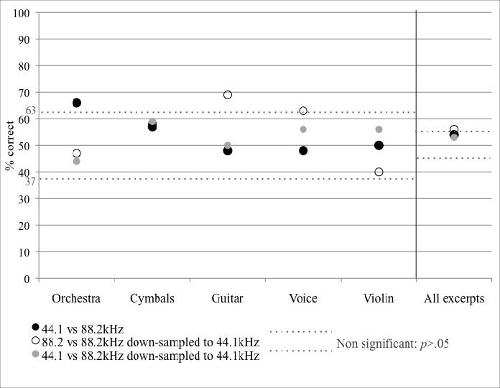arnyk
Repeatedly defended arguments with personal attacks.
- Joined
- May 30, 2015
- Posts
- 737
- Likes
- 119
ABX tests test memory, not sound quality.
ABX tests force an unnatural choice in an unnatural environment.
Our ear-brain does not react favorably to ABX tests.
That's why they are garbage for sound quality. It hasn't stopped them from owning the world of sound arguments.
Which is why sound as a whole is so crap right now. The ABX test and it's garbage results have caused this
Ah, the usual simplistic anti-science propaganda that one can read all over the web!

Any listening test that involves comparing two sounds requires that one of them be in the listener's memory. Any listening test that does not involve comparing two sounds fails to be a test because it does not involve a fixed reference.
So you want me to believe that audiophile tests don't involve memory. Good luck with that!
Please tell us about a listening test that does not involve making choices. If a listening test does not involve making choices, then it can't be used to guide purchase decisions and what good is it?
The assertion that the brain does not react well to ABX is just an assertion without evidence or proof, but so are the rest of the claims, above.
ABX is not the reason why sound as a whole is crap because sound as a whole is not crap. If you don't like modern technology, then go back to legacy technology. ABX says that a lot of it is really pretty good.
However, ABX is not the be-all and end-all. it is not the only DBT-based methodology. What is of the essence is the right tool for the job at hand. All that we need is a listening test methodology that fails to have the egregious failings of the usual audiophile listening evaluations. Got one?






